
Chinese scientists have set a new world record of achieving a plasma temperature of 120 million degrees Celsius for a period of 101 seconds in the latest experiment on Friday, a key step toward the test running of a fusion reactor.
The breakthrough was announced by Gong Xianzu, a researcher at the Institute of Plasma Physics of the Chinese Academy of Sciences (ASIPP), who is in charge of the experiment conducted in Hefei, capital of east China's Anhui Province.
The experiment at the experimental advanced superconducting tokamak (EAST), or the "Chinese artificial sun," also realized a plasma temperature of 160 million degrees Celsius, lasting for 20 seconds.
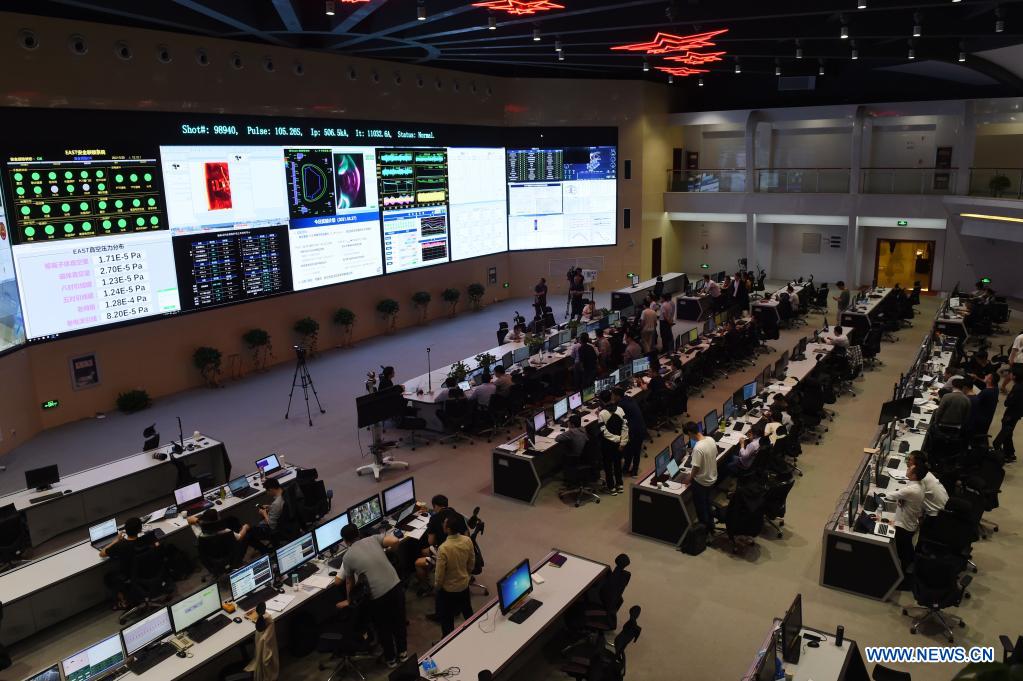
Researchers work at the control center of the experimental advanced superconducting tokamak (EAST), or the "Chinese artificial sun," on the early morning of May 28, 2021. Chinese scientists have set a new world record of achieving a plasma temperature of 120 million degrees Celsius for a period of 101 seconds in the latest experiment on Friday, a key step toward the test running of a fusion reactor. The experiment at the experimental advanced superconducting tokamak (EAST), or the "Chinese artificial sun," also realized a plasma temperature of 160 million degrees Celsius, lasting for 20 seconds. (Xinhua/Zhou Mu)
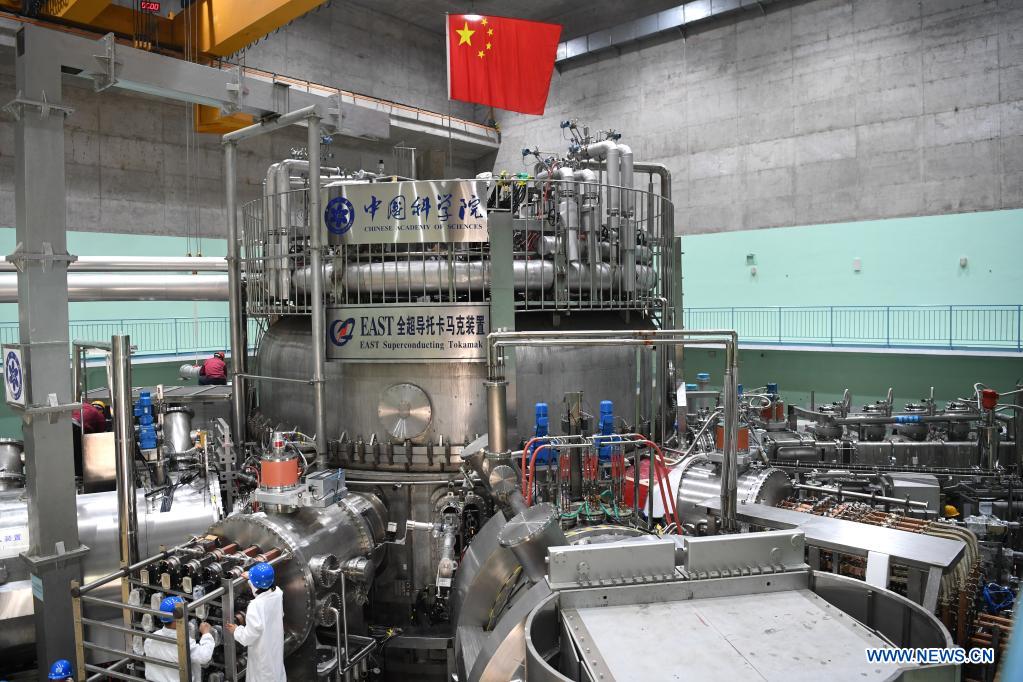
Staff members perform an upgrade to the experimental advanced superconducting tokamak (EAST) at the Hefei Institutes of Physical Science under the Chinese Academy of Sciences (CAS) on April 13, 2021. Chinese scientists have set a new world record of achieving a plasma temperature of 120 million degrees Celsius for a period of 101 seconds in the latest experiment on Friday, a key step toward the test running of a fusion reactor. The experiment at the experimental advanced superconducting tokamak (EAST), or the "Chinese artificial sun," also realized a plasma temperature of 160 million degrees Celsius, lasting for 20 seconds. (Xinhua/Liu Junxi)
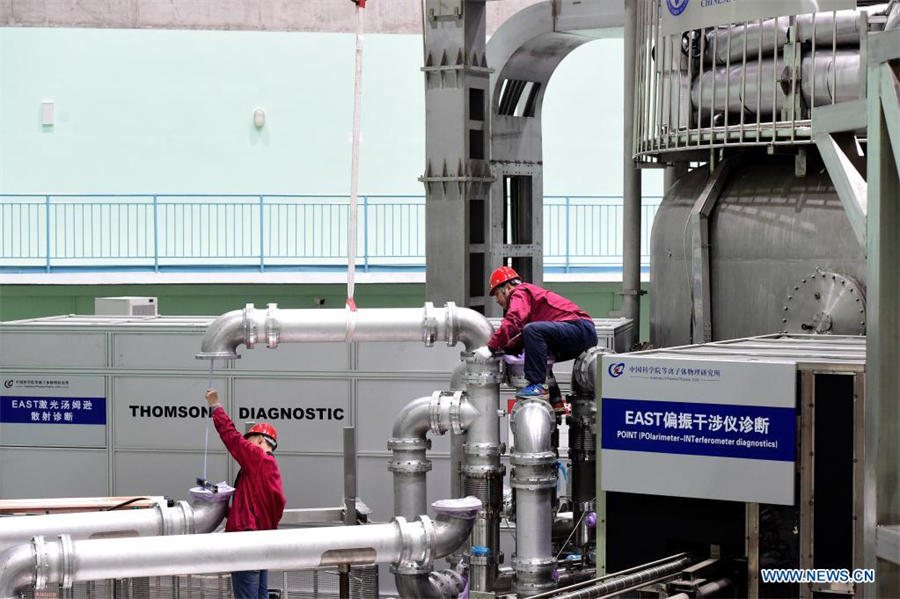
Staff members perform an upgrade to the experimental advanced superconducting tokamak (EAST) at the Hefei Institutes of Physical Science under the Chinese Academy of Sciences (CAS) on April 13, 2021. Chinese scientists have set a new world record of achieving a plasma temperature of 120 million degrees Celsius for a period of 101 seconds in the latest experiment on Friday, a key step toward the test running of a fusion reactor. The experiment at the experimental advanced superconducting tokamak (EAST), or the "Chinese artificial sun," also realized a plasma temperature of 160 million degrees Celsius, lasting for 20 seconds. (Xinhua/Zhou Mu)
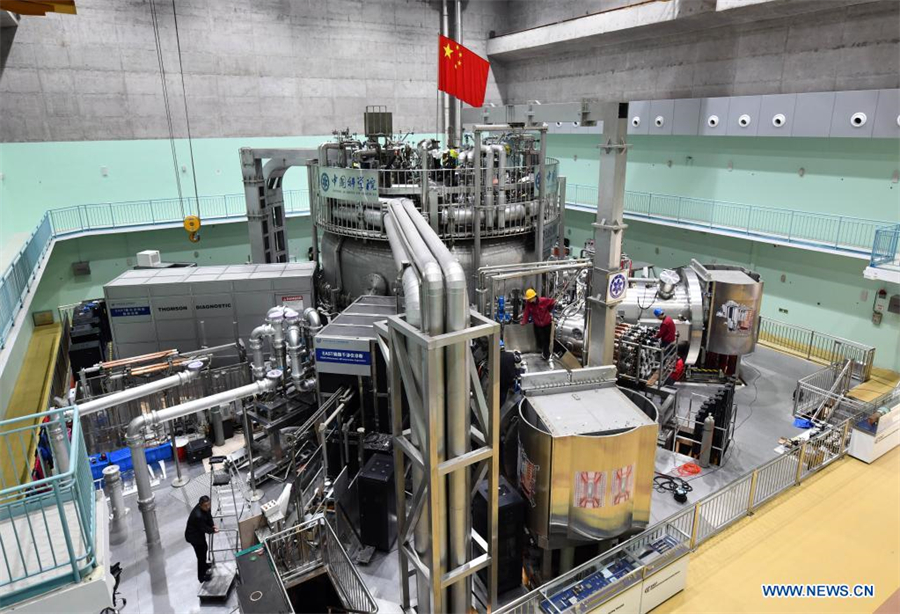
Photo taken on April 13, 2021 shows the experimental advanced superconducting tokamak (EAST). Chinese scientists have set a new world record of achieving a plasma temperature of 120 million degrees Celsius for a period of 101 seconds in the latest experiment on Friday, a key step toward the test running of a fusion reactor. The experiment at the experimental advanced superconducting tokamak (EAST), or the "Chinese artificial sun," also realized a plasma temperature of 160 million degrees Celsius, lasting for 20 seconds. (Xinhua/Zhou Mu)
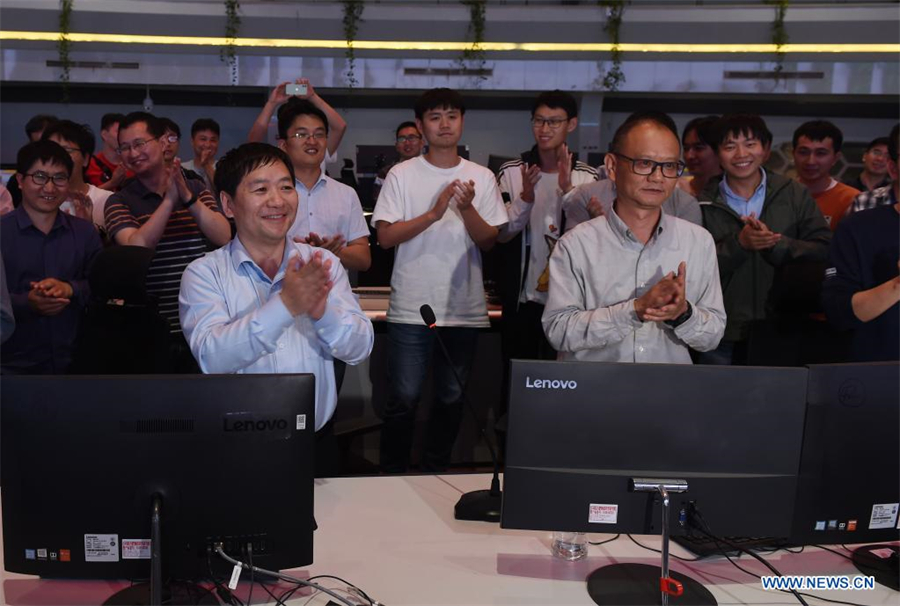
Researchers celebrate the success of experiment at the control center of the experimental advanced superconducting tokamak (EAST) on the early morning of May 28, 2021. Chinese scientists have set a new world record of achieving a plasma temperature of 120 million degrees Celsius for a period of 101 seconds in the latest experiment on Friday, a key step toward the test running of a fusion reactor. The experiment at the experimental advanced superconducting tokamak (EAST), or the "Chinese artificial sun," also realized a plasma temperature of 160 million degrees Celsius, lasting for 20 seconds. (Xinhua/Zhou Mu)

86-10-68597521 (day)
86-10-68597289 (night)

52 Sanlihe Rd., Xicheng District,
Beijing, China (100864)

